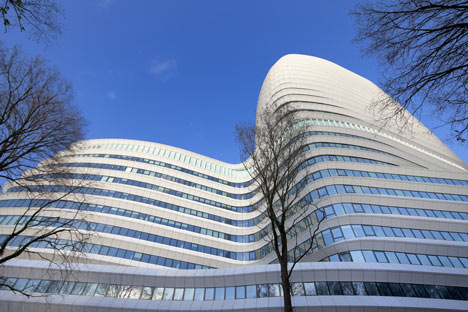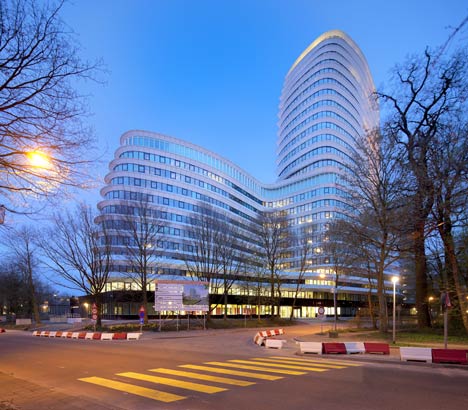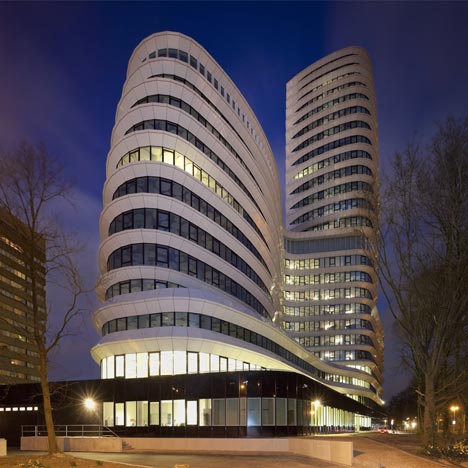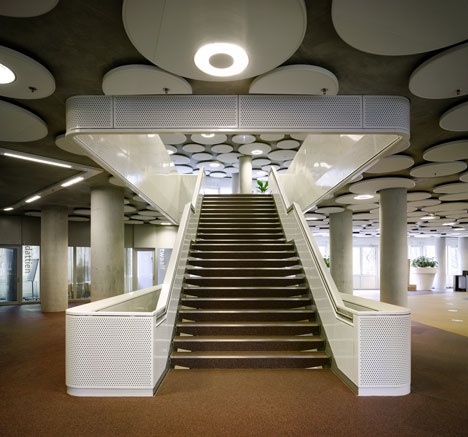Last week I devoted a column to the unsettling political developments in Hungary. To expand on all this, I’ve asked my Princeton colleague Kim Lane Scheppele, who has been working extensively on the situation, to contribute a post. It’s below the fold.
Hungary’s Constitutional Revolution
Kim Lane Scheppele
Last week, Paul Krugman’s column “Depression and Democracy” called attention to Hungary’s “authoritarian slide.” Since I was one of the sources for Paul’s column, I’d like to explain why I have been alarmed at the state of both constitutionalism and democracy in Hungary.
This constitutional activity has transformed the legal landscape to remove checks on the power of the government and put virtually all power into the hands of the current governing party for the foreseeable future.
Under the new constitutional order, the judiciary has taken the largest hit. The
Constitutional Court, which once had the responsibility to review nearly all laws for constitutionality, has been killed off in three ways. First, the government expanded the number of judges on the bench and filled the new positions with their own political allies (think: Roosevelt’s court-packing plan). Then, the government restricted the jurisdiction of the court so that it can no longer review any law that has an impact on the budget, like laws pertaining to taxes and austerity programs, unless the law infringes particular listed rights. Finally, the government changed the rules of access to the court so that it will no longer be easily able to review laws in the abstract for their compliance with the constitution. Moreover, individuals can no longer challenge the constitutionality of laws without first going through a lengthy process in the ordinary courts. The old Constitutional Court, which has served as the major check on governmental power in a unicameral parliamentary system, is now functionally dead.
The ordinary judiciary has suffered a similar fate. The government lowered the retirement age for judges from 70 to 62, giving judges only a few months to adjust to their new futures. More than 200 judges will be forced to retire from the bench starting on January 1, including most of the court presidents who assign cases and manage the daily workings of courts. The new law on the judiciary requires that the Supreme Court president have at least five years of Hungarian judicial experience. The
current president of the Supreme Court is disqualified because his 17 years of experience as a judge on the European Court of Human Rights do not count. Therefore, he must leave office on January 1 also.
The law on the judiciary also creates a new National Judicial Office with a
single person at the helm who has the power to replace the retiring judges and to name future judges. This person also has the power to move any sitting judge to a different court. A new constitutional amendment – to the new constitution! – will permit both the
public prosecutor and the head of this new National Judicial Office to choose which judge will hear each case.
The
independence of the judiciary is over when a government puts its own judges onto the bench, moves them around at will, and then selects which ones get particular cases to decide.
The Vice President of the European Commission for Justice, Fundamental Rights and Citizenship, Viviane Reding,
issued a strongly worded request for information about the new law last week and demanded immediate replies from the Hungarian government. She also strongly urged the government “to ensure . . . that no measure is implemented until doubts about its compliance with EU law are removed.” The government responded by saying all of these changes are improvements and it seems to be going ahead with implementing the new constitutional framework despite the strong caution from Brussels.
In the new constitutional system, the legal supervision of elections has also been changed. Before the last election, the norm was for the five-member Election Commission to be politically diverse and for the government of the day to consult the opposition before nominating candidates. But the rules were changed last year so that each new national election is now accompanied by a new choice of election commissioners. As a result, the existing commissioners were removed from their offices without allowing them to finish their terms and now the Election Commission consists of five members of the governing party.
The new election law specifies the precise boundaries of the new electoral districts that will send representatives to the parliament. But the new districts are drawn in such a way that no other party on the political horizon besides Fidesz is likely to win elections. A respected Hungarian think tank
ran the numbers from the last three elections using the new district boundaries. Fidesz would have won all three elections, including the two they actually lost.
Virtually every independent political institution has taken a hit. The human rights,
data protection and minority affairs ombudsmen have been collapsed into one lesser post. The public prosecutor, the state audit office and, most recently, the
Central Bank are all slated for more overtly political management in the new legal order.
And all of this has happened while the press operates under day-to-day intimidation. A draconian set of
media laws created a new media board – staffed only by Fidesz party loyalists with a chair who is appointed by the Prime Minister to a nine-year term. This board can review all public and private media for their compliance with a nebulous standard of political “balance” and has the power to bankrupt any news organization with large fines. It is not surprising that the media have become
self-censoring. This new media regime has been severely criticized by the
European Commissioner for Communications, among
others.
In a democracy, the population can “throw the bums out” and replace the government with a different one that can change the policies that do not have public support. But that will be nearly impossible under this constitution. In addition to compromising institutions that are necessary for a free and fair election – like a free press and a neutral election apparatus – the new constitution embeds Fidesz control even if another political party defies the odds and wins an election.
The new constitution makes huge swaths of public policy changeable only by a two-thirds vote of any subsequent parliament. From here on, all tax and fiscal policy must be decided by a two-thirds supermajority. Even the precise boundaries of electoral districts cannot be changed by simple majority vote, but only by a two-third supermajority. If a new government gets a mere majority, policies instituted during the Fidesz government cannot be changed.
That’s not all. The long arm of the current Fidesz government can grab and shake any foreseeable future government
through the officials they are now putting into place. The new constitutional order extends the terms of office for the public prosecutor (9 years), the head of the state audit office (12 years), the head of the national judicial office (9 years), the head of the media board (9 years), the head of the budget council (6 years) and more. Each of these positions has been filled with Fidesz party loyalists who will be able to conduct public investigations, intimidate the media, press criminal charges and continue to pack the courts long after the government’s current term is over. Moreover, unless there is a two-thirds vote to replace these new office holders, they can stay in office until such a two-thirds vote can be achieved, which could extend these long terms of office even further.
How do all of these pieces work together? One example will illustrate. The constitution creates a national budget council with the power to veto any future budget that adds to the national debt, which any foreseeable budget will do. The members of the budget council have been chosen by this government for terms of 6 or 12 years and can only be replaced if two-thirds of the parliament can agree on new candidates when their terms are over. Another part of the constitution requires the parliament to pass a budget by March 31 of each year. If the parliament fails to do so, the president of the country can dissolve the parliament and call new elections. When these pieces are put together, the constraints on any future government are clear. A new government will pass a budget – but that budget can be vetoed by Fidesz loyalists so that the budget deadline is missed, and then the president (also named by Fidesz) will call new elections. And this can be repeated until an acceptable government is voted back into power.
The only parties that might replace Fidesz in the current Hungarian landscape are the Socialist Party or, in a real nightmare scenario, the far-right Jobbik. Under laws that preceded Fidesz’s election last year, political parties that are anti-constitutional may be banned. Some have suggested that Fidesz could eliminate Jobbik in this way. In fact, Europe probably would not mind if Jobbik were excluded from public life because other European countries can ban extremist parties also. But what about Fidesz’s primary competition – the Socialists?
According to a
proposed constitutional amendment, the crimes of the former communist party will be listed in the constitution and the statute of limitations for prosecuting crimes committed during the communist period will be lifted. The former communist party is branded a criminal organization and the current opposition Socialist Party is designated as their legal successor. It is still unclear, legally speaking, what this amendment means. But it is probably not good for the major opposition party.
The Fidesz government has accomplished this constitutional revolution by legal means after a democratic election. But though Fidesz was democratically elected and has accomplished this program through constitutional change, Hungary is not a constitutional democracy. Instead Hungary is, as Paul Krugman said, sliding into authoritarianism.





















